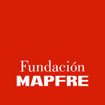Urban social challenge: for sustainable household water use
Information, communication and public awareness for efficient water use

Today more than 55% of the world’s population lives in cities, with many publications predicting that the number will exceed 6 billion people by 2050, more than 66% of the world’s population. This will mean that, for the first time in history, more people will live in cities than in the countryside. This urban population is responsible for more than 70% of the world’s GDP and generates more than 80% of all high value-added jobs.
This population movement makes cities a central element of interest, given the many new management challenges they face. Among these challenges is the pressure on limited natural resources such as water, food and energy. These three elements are clearly related to each other. In addition, there is the challenge to manage climate change, on which cities have a greater impact. As an example, cities consume 70% of the world’s energy and produce 70% of all greenhouse gas emissions.
Water is the only natural restriction on the expansion of cities, and appears as the only natural limit to their economic growth and development. Greater economic development, and the strive for a better quality of life and comfort for its citizens, will imply an increase in the demand for water. It is therefore essential to achieve a “Sustainable urban water management” that takes into account the sustainable development of cities and the role of the citizen in achieving it. To do so, it is necessary to build social capital, increasing people’s skills and connections, both among themselves and with their environment, at different levels of details and engagement. Social innovation projects are one of the tools to achieve this.
In relation to social innovation, we need to further promote the education of citizens regarding water and a greater understanding of the integral water cycle, to reduce drinking water consumption in homes, which in most cases is far from the sustainability recommendation of 100 liters/inhabitant/day. This is a key factor, especially in a situation of climate change, with difficulties in predicting rainfall, which is already becoming increasingly scarce, and with agriculture and industry competing with households over water resources in cities.
From the Food Quality Engineering Research Group (ETSII-UPM), we are working on a challenge for a “More efficient and sustainable use of water” in homes, which the Suez group defined through the UP4 Solutions program, in collaboration with the UP4 technological university alliance (Universitat Politècnica de Catalunya). Barcelona Tech, Universidad Politécnica de Madrid, Universitat Politècnica de València, Universidad Politécnica de Cartagena).
The main objective is to promote the efficient and sustainable use of water resources based on information, communication and public awareness. The project focuses on understanding, within the water cycle, which are the factors, elements and data that generate a greater impact and understanding of the challenges we face in terms of water resource management, thus being able to generate consideration within the households towards a cultural change in terms of its use and valuation. To this end, the following specific objectives have been defined:
- Assess the level of consumer awareness of the challenges associated with sustainable water use.
- Identification of their needs as consumers.
- Determine and prototype solutions that help to raise awareness and value the sustainability of water use, proposing specific actions to consumers that address, at the same time, part of their needs.
This must help us to delve into the aspects that allow us to directly relate their day to day behavior with the sustainability of comprehensive water management. Thus, a change in consumer behavior will be promoted, which, together with the efforts of the managers of the urban water cycle, would lead to a more sustainable use and better protection of current and future resources.
Therefore, this is a project that is clearly “customer focused”, which uses digital technologies that enable us to interact with homes.
Given this “human center” orientation towards sustainability, the project team opted for a methodology based on Design Thinking, which by means of surveys, workshops and web based prototypes, together with “Smart meters”, allows an interaction with households to conclude their real behavior with respect to water, especially in those contexts and private spaces, which require removing any sense of invasion of privacy.
The project is still being carried out in one of the Suez group’s affiliated companies, in “Aguas de Huelva” with the participation of around 100 households.
About the author:
